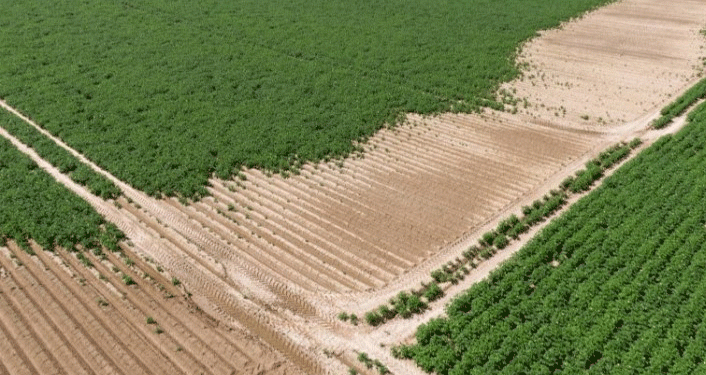The Northwestern European Potato Growers (NEPG) has raised alarms about the unprecedented risks faced by potato farmers this year. Late planting seasons, emergence issues, and high disease pressure have placed yields under significant threat. Despite these challenges, NEPG reports a 4-6% increase in potato planting across Belgium, the Netherlands, France, and Germany.
This year, prolonged rainfall has caused unprecedented delays in potato planting across Belgium, the Netherlands, France, and Germany. “The planting season averaged eight to ten weeks this spring, with the last potatoes only planted in early July,” noted NEPG. This delay has led to a wide variety of crop stages, from fields in full bloom with large tubers to freshly planted ones.
Concerns Over Quality and Quantity
The late planting has resulted in many seed potatoes losing their sprouting ability. Excessive rain and the use of cut seed potatoes have led to rotting, causing significant emergence problems, especially in Belgium and the Netherlands. Some fields have seen up to 80% of planted potatoes failing to develop into plants. Heavy rains and flooding have further exacerbated losses, affecting various regions in the Benelux and parts of Germany, such as Bavaria.
There are numerous uncertainties about the future quality and quantity of the harvest. Questions persist about whether the late-planted potatoes will be large enough for processing and whether they will achieve adequate underwater weight. Additionally, there were shortages of suitable seed potatoes this year, leading to the use of less ideal varieties and large cut seed potatoes, which may not meet processing standards.
Seed Potato Issues
NEPG does not expect the seed potato issues to be resolved by the next season. While the area dedicated to seed potatoes has increased in France, it has decreased by 3% in the Netherlands compared to 2023. “Moreover, hundreds of hectares used for seed potato cultivation in the Netherlands have been heavily damaged,” NEPG stated. The organization also highlighted the uncertainty regarding tuber formation and the number of tubers.
Increasing Competition
Within the NEPG zone, the demand from the processing industry continues to rise, with production capacity, particularly in France, also increasing. However, the market for frozen fries and other processed potato products has recently stabilized or declined. NEPG points out that there is growing competition from North America and increasing pressure from countries like China, India, Turkey, and Argentina. “Potato growers need to consider these developments when thinking about further expansions or investments,” NEPG advised.
These combined factors have made the risks for potato growers higher than ever before. Climate-related issues and significant disease pressures are major concerns. “With the resistance of some Phytophthora strains and reduced availability of fungicides, potato farming has become much riskier,” NEPG noted. The organization concluded that while sustainable production is expected from growers, disruptive weather patterns complicate this goal, raising many questions about the sustainable future of the potato sector.





